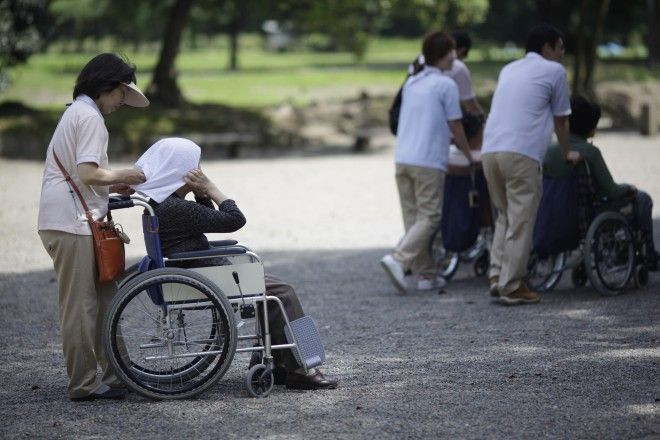Why Japan 'allowed' deflation

Japan's decade-long deflation was triggered by a financial crisis, asset bubble collapse, and a recession. However, other countries have experienced those unfortunate events but have not spiraled into long-term deflation.
To some degree, Japan allowed deflation, or at least they did not choose extremely aggressive policies to fight it. This happened because of Japan's highly independent but largely unaccountable central bank, aging population, over-presentation of older voters, and trade surplus-funded fiscal deficits.
Because these dynamics are not as serious or non-existent in the U.S. and EU, deflation is less likely to happen there, said Robert Feldman, Morgan Stanley's chief Japan economist.
Bank of Japan
The Bank of Japan (BOJ) was often criticized for not expanding monetary supply enough to fight deflation. Fed Chairman Ben Bernanke, in a 2003 speech, essentially said the BOJ was not aggressive and did not exploit all possible methods for easing monetary policy.
This lack of aggressive policy is in part due to its highly independent but low accountability nature. In Japan, society has permitted the BOJ to be…independent and unaccountable in the face of virulent and persistent deflation, said Feldman.
For example, the BOJ governor is appointed for 5 year terms and can only be removed if he has a mental or physical disorder. The BOJ is also not subject to the same degree of testimony and grilling in front of lawmakers compared to its U.S. or EU counterparts.
Therefore, it is difficult for the public to force the BOJ to aggressively venture beyond standard monetary policy in the face of a decade-long deflation.
Aging Population & a Political System that Favors Elders
But perhaps the outcry in Japan against deflation wasn't particularly loud and some older people probably did not mind it too much.
In fact, Feldman said escape from deflation was possible and within reach in 2006, but the Japanese society decided to return to deflation.
Many older people in Japan live on fixed income, so they favor falling prices and are against loose monetary policy, said Feldman.
Japan has one of the most acute cases of an aging population in the world. About 22 percent of Japan's population is over 65 years old, compared to 20 percent for Germany and the U.S. and about 8 percent for China.
Politically speaking, voter turnout is higher among older people and districts with more older voters are overrepresented in Japan's legislative body, said Feldman. This, combined with their already large numbers, give older people a disproportionate say in the government.
Who Holds the Government Debt?
The U.S. has a large trade deficit and government budget deficit, so a substantial portion of U.S. debt is held by foreigners.
Contrastingly, Japan has a large trade surplus but still a budget deficit. So it has public debt like the U.S., but the vast majority of it is held domestically.
Inflation -- especially unexpected ones -- makes debt less valuable and easier to repay. Contrastingly, deflation makes debt more difficult to repay. Thus, the U.S. has an a strong incentive against deflation, where as some of the domestic holders of Japanese debt don't mind it as much.
Email Hao Li at hao.li@ibtimes.com
Click here to follow the IBTIMES Global Markets page on Facebook.
Click here to read recent articles by Hao Li.
© Copyright IBTimes 2025. All rights reserved.





















